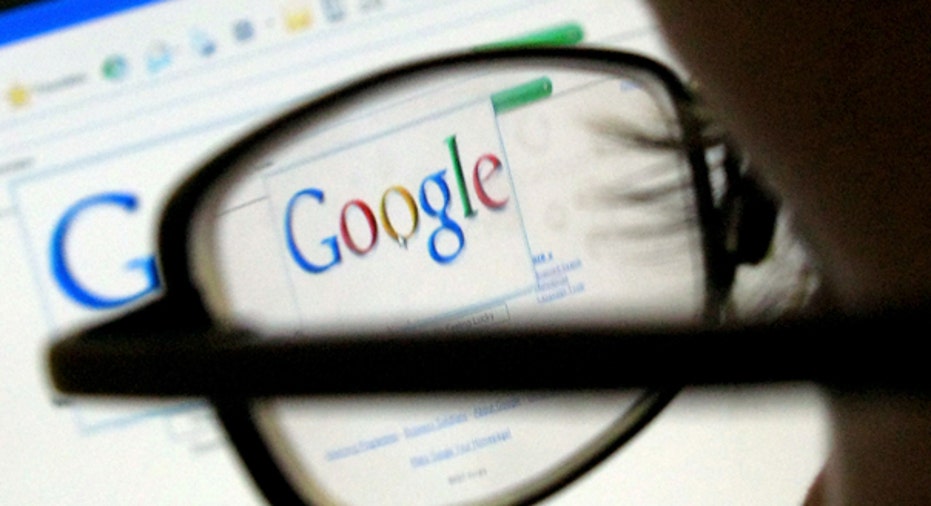Google Set To Face Intellectual Ventures In Landmark Patent Trial

Intellectual Ventures is set to square off this week against Google Inc's Motorola Mobility unit in the first trial that the multibillion-dollar patent-buying firm has undertaken since it was founded.
Privately-held Intellectual Ventures sued Motorola in 2011, claiming the mobile phone maker infringed patents covering a variety of smartphone-related technologies, including Google Play. Motorola has denied the allegations and will now go to trial over three of those patents.
Barring any last-minute settlements, jury selection is scheduled to begin on Tuesday at a federal court in Wilmington, Delaware.
The trial takes place amid an unfolding debate in Congress over patent reform, in which Intellectual Ventures and Google are on opposite sides. Google is backing attempts to curb software patents and make it easier to fight lawsuits, while IV has warned that Congress should not act too rashly to weaken patent owners' rights.
IV and other patent aggregators have faced criticism from some in the technology industry, who argue that patent litigation and royalty payments have become a burdensome tax on innovation. They say firms like IV, which do not primarily make products, are exploiting the patent system.
But IV argues that unlike some of the firms denounced as "patent trolls," it invests only in quality intellectual property and does not file frivolous lawsuits. IV also says it helps inventors get paid for their innovations while helping tech companies protect and manage their intellectual property.
Should the Delaware jury rule against Motorola and uphold IV's patents, it could bolster the firm's argument that it does not buy frivolous patents, said Shubha Ghosh, a University of Wisconsin Law School professor.
Yet a win for Motorola could be held up as evidence that the U.S. government issues too many dubious patents. And even if IV prevails, Google could still argue that patent litigation before a jury of non-expert citizens is akin to a lottery, said Ghosh, who supports patent reform.
"Just because you have a winning ticket doesn't mean it's not still a lottery," he said.
IV and Google both declined to comment on the upcoming trial.
Since its founding in 2000, IV has raised about $6 billion from investors and has bought tens of thousands of intellectual property assets from a variety of sources. Google was an investor in IV's first patent acquisition fund, but did not join later vehicles.
IV filed a barrage of lawsuits in 2010 against companies in various sectors, and most defendants have since settled.
THE INVENTORS
Two of the patents in the upcoming Motorola trial cover inventions by Richard Reisman, U.S. government records show. Through his company, Teleshuttle, Reisman has developed several patent portfolios for various technologies, including an online update service, according to the Teleshuttle website.
IV claims that the two Reisman patents cover several of Motorola's older-generation cellphones that have Google Play, a platform for Android smartphone apps. Motorola argues that IV's patents should never have been issued because the inventions were known in the field already.
Reisman did not respond to requests for comment.
One of the patents in play against Motorola has been in a courtroom before. Teleshuttle and a British partner, BTG, sued Microsoft and Apple in 2004 using one of the same patents now in play against Motorola.
In 2006, Teleshuttle and BTG sold their patent rights to Delaware-based Twintech EU LLC for $35 million up front, plus a percentage of future licensing fees, according to BTG's website. At the same time as the sale, BTG and Teleshuttle abruptly withdrew their cases against Apple and Microsoft.
Microsoft and Apple were both early investors in Intellectual Ventures. IV often uses subsidiary companies to buy patents, and then transfer them at a later date to related corporate entities, though public records do not indicate whether IV had an ownership interest in Twintech.
IV took title on the patents from Twintech in September 2011 and sued Motorola a month later, U.S. records show. In a 2011 blog post, Reisman wrote that his deal with IV provided resources "to let me focus on my work as an inventor."
Microsoft declined to comment while Apple did not respond to a request for comment.
Another patent being asserted against Motorola was originally issued to Rajendra Kumar in 2006. Kumar's company, Khyber Technologies, transferred it to Balustare Processing NY LLC in July 2011, which passed it over to IV about a month later, patent records show.
Khyber Technologies was founded in 1991 with the goal of creating the next generation of handheld computing products, according to its website. The patent that IV obtained from Khyber covers detachable handset technology, which IV claims Motorola used in its defunct Lapdock product.
Kumar declined to comment on the IV lawsuit.
If IV wins, damages will be decided at a later proceeding. The trial is expected to last about ten days.
The case in U.S. District Court, District of Delaware is Intellectual Ventures I and Intellectual Ventures II, 11-908.



















